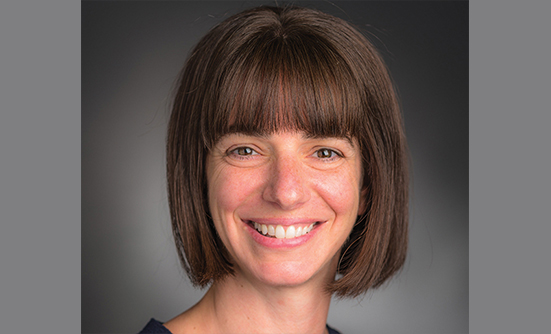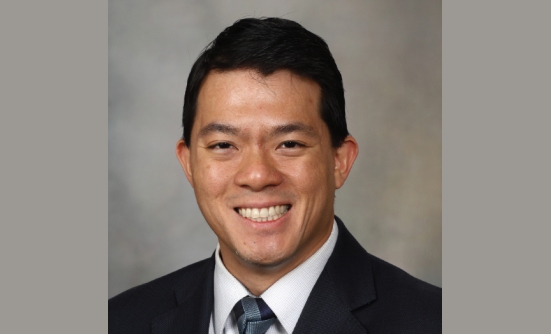A total of 80% of patients with relapsed (coming back) or refractory (not responding to therapy) slow-growing (indolent) non-Hodgkin lymphoma (NHL)—including patients with follicular lymphoma or marginal-zone lymphoma (MZL)—achieved a complete response (no sign of cancer) to Yescarta (axicabtagene ciloleucel), an anti-CD19 CAR T-cell therapy.
Furthermore, the responses have been durable, lasting many months or still ongoing, according to the interim results of the phase 2 ZUMA-5 study, said Caron A. Jacobson, MD, Medical Director, Immune Effector Cell Therapy Program, Dana-Farber Cancer Institute, Boston, Massachusetts, at the 2020 ASCO annual meeting.
Axicabtagene ciloleucel is 1 of only 2 CAR T-cell therapies currently approved by the FDA, and it is already approved as a third-line treatment for adults with relapsed or refractory aggressive B-cell NHL. This study focused specifically on patients with follicular lymphoma or with MZL, 2 types of indolent NHL.
Patients with Follicular Lymphoma
Among the first 80 patients with follicular lymphoma who were eligible for evaluation for the benefit of the treatment and were followed-up for at least 9 months, 95% of the patients had a response to treatment (as evident by reduction in cancer cells) and 80% of the patients continue to have a response, at an average follow-up of 15.3 months.
“Median overall survival has not been reached, and 94% of patients remain alive at 12 months of follow-up,” said Dr. Jacobson. “Given the long natural history of these diseases, safety is of paramount importance. The safety profile was manageable and reversible, and appeared to be similar to that of axicabtagene ciloleucel in aggressive lymphomas.”
Advanced-stage, slow-growing NHL, such as follicular lymphoma, is largely incurable with conventional therapies, with many patients having multiple relapses over the natural course of their disease, and the time of remission is getting shorter with subsequent therapies, Dr. Jacobson said.
The ZUMA-5 Study
The ZUMA-5 study was a multicenter, single-group study that evaluated treatment with axicabtagene ciloleucel in patients with relapsed or refractory indolent NHL (including follicular lymphoma or MZL) after 2 or more previous therapies.
A total of 148 patients had leukapheresis (a procedure in which white blood cells are separated from a patient's blood sample) and received lymphodepleting chemotherapy, and 140 patients (124 with follicular lymphoma and 16 with MZL) received treatment with axicabtagene ciloleucel.
The analysis of the effectiveness of the treatment included 96 patients—80 of them had follicular lymphoma who were followed-up for 9 months or more, and the other 16 patients had MZL and were followed- up for 1 month or more.
All 140 patients in the study were included in the safety analysis, with an average follow-up of 12.8 months.
The baseline patient characteristics showed that 70% of the patients received 3 or more previous therapies, with an average of 3 therapies.
More than 50% of patients had advanced or metastatic (stage IV) disease, and 49% of the patients had a high tumor bulk. About two-thirds (66%) of the patients had disease progression less than 2 years after receiving initial therapy with an anti-CD20 monoclonal antibody, and 73% of the patients had disease refractory to the last treatment they received. About one-quarter (25%) of the patients had previously undergone a stem-cell transplant.
A total of 93% of patients had a positive response to therapy, and 80% of them had a complete response (no sign of disease).
For the group with follicular lymphoma, the response rate was 95%, with a complete response of 81%. In the MZL group, the response rate was 81% and the complete response was 75%.
“Although it appears that the response rate is lower in the MZL cohort, this is largely due to the fact that 19% of patients were found to not have measurable disease by central radiology review prior to CAR T-cell infusion,” said Dr. Jacobson.
Among the patients with follicular lymphoma, 13% of patients who at 1 month had a partial response subsequently had a complete response to therapy with the CAR T-cell therapy.
The estimated length of response in the entire study population was 20.8 months, and 68% of the patients with follicular lymphoma had ongoing response at the time of this analysis.
Of the patients with follicular lymphoma, 80% maintained their response for more than 12 months. The average duration of response in the patients with MZL was 10.6 months. The average progression-free survival was 23.5 months in all patients.
Side Effects
Serious (grade 3 or 4) side effects were common among the patients, with most of the side effects related to cytopenias (reduced blood cells), said Dr. Jacobson.
There were 2 deaths in patients with follicular lymphoma, including 1 patient who had multiorgan failure because of cytokine release syndrome, a common and serious side effect of CAR T-cell therapies, and 1 died from aortic dissection that was not related to the CAR T-cell therapy.
Overall, 79% of patients had any-grade cytokine release syndrome, with 8% of the cases being grade 3 events. Cytokine release syndrome was treated with Actemra (tocilizumab) in 47% of patients and with corticosteroids in 17%.
The rate of neurologic side effects of any grade was 58%, with grade 3 or 4 neurotoxicity observed in 17% of the patients. The most common manifestations of neurotoxicity were tremor (51%) and confusion (41%). Corticosteroids were used in 34% of the patients for these side effects.
Patients with follicular lymphoma had lower rates of high-grade cytokine release syndrome and neurologic side effects than patients with MZL.













